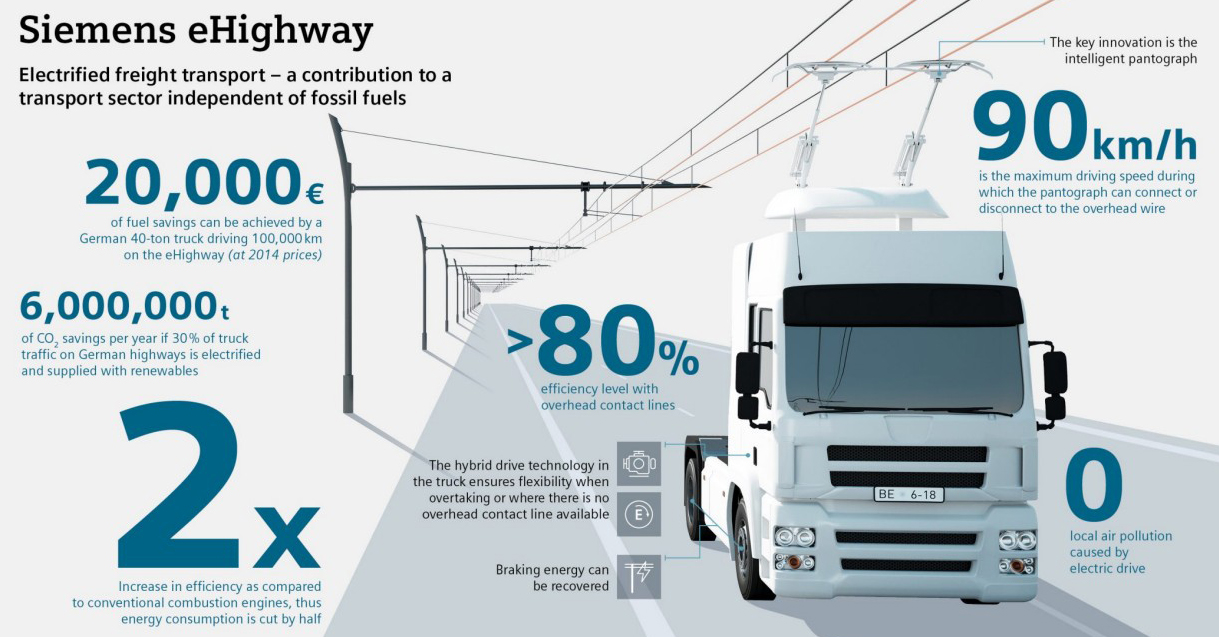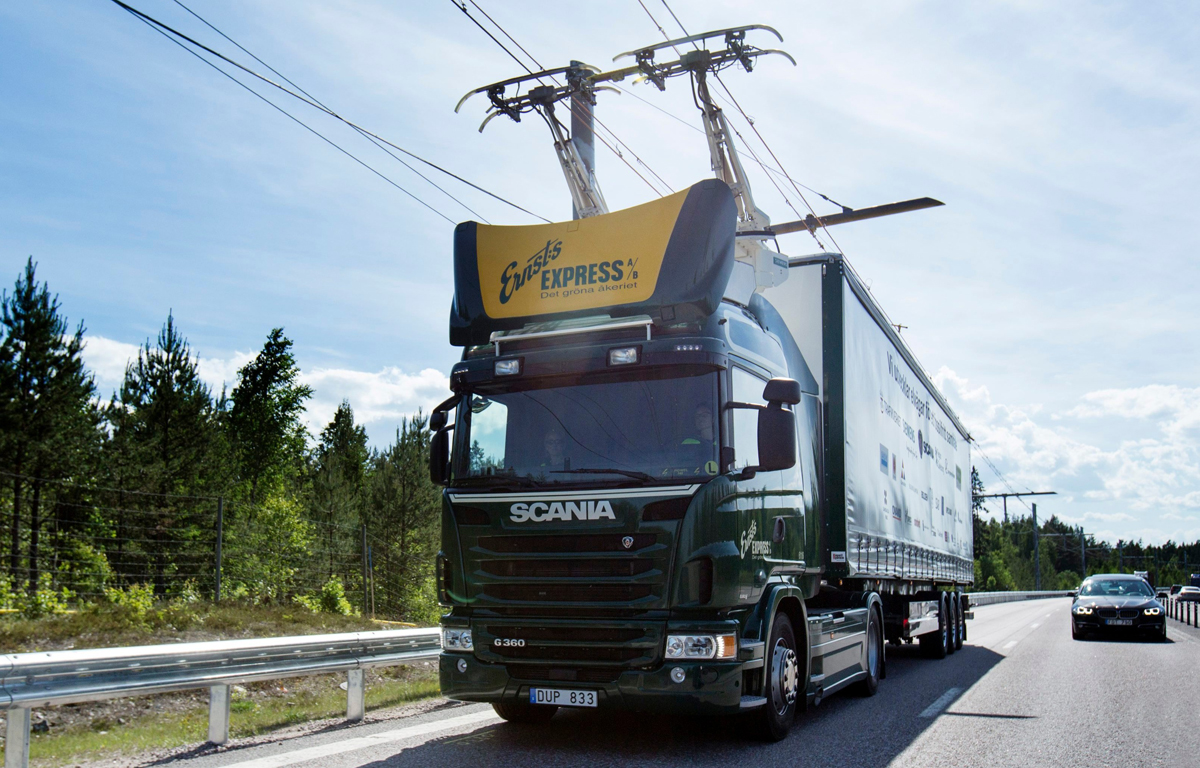The big picture: Germany this week opened a six-mile stretch of "eHighway" on the Autobahn that's capable of supplying power to hybrid semi-trailer trucks via a proprietary overhead cable system. It seems like a well-intentioned project although personally, I'm struggling to see what advantages it brings to the table over more traditional electric vehicles.
The system, developed by Siemens Mobility, is said to combine the advantages of electrified rail lines with the flexibility of road freight transport. When connected to an overhead line, the truck's diesel engine turns off and it is powered entirely by its electric motor. Onboard batteries are also charged by the 670-volt overhead cables.

When the truck detaches from the cables, it switches back to diesel power or uses reserves stored in the batteries.
Siemens' eHighway was demonstrated in California in late 2017.
The pilot has already cost the government more than 14 million euros ($15.7 million) and the Federal Ministry for the Environment, Nature Conservation and Nuclear Safety has allocated more than 70 million euros for the development of overhead line hybrid trucks.
Testing will continue through 2022 at which time a decision will have to be made regarding the project's future. As New Atlas highlights, it would take a significant amount of time and money to build electric highways at a scale that would be useful. Even then, it's unclear if such a system would be better than standalone electric vehicles like those from Tesla.
